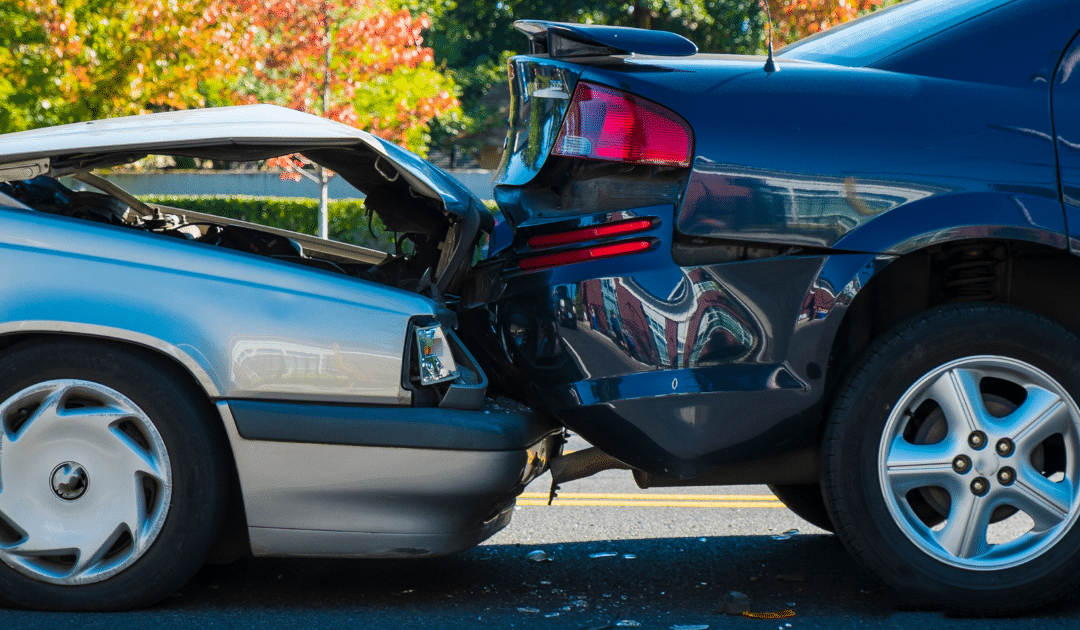
by California Casualty | Auto Insurance Info |
You got a new car—or a “new” used car. Now you have to figure out your car insurance. Here’s what you need to know about the most common types of auto coverage: liability and coverage for damage to your auto (comprehensive and collision).
Liability Coverage – What is it?
If you cause an accident, you are liable (responsible) for damages. Liability coverage is used to pay for those damages that you caused. Importantly, it does not cover any damage to your own vehicle; that’s covered by collision. It also does not cover injury to you and your family; it only covers the people in the other car. Liability coverage is required by law in most states.
There are two types of liability coverage:
-
- Bodily injury coverage helps pay for medical expenses, lost wages, and pain and suffering for the driver and passengers in the other vehicle.
-
- Property damage coverage helps pay for repairs for the other vehicle or for repair/replacement of property, such as a fence, damaged or destroyed in the collision.
We say “helps pay” because it depends on how much coverage you choose. The costs of an accident can be more than your insurance policy limit.
You choose a coverage limit.
Each state sets a minimum amount. The main goal of liability insurance is to protect your assets, and so you may choose a higher limit than the state specifies. You’ll want to take into account the amount of medical expenses that could be incurred in an accident. You could be responsible for lost wages for the driver. Even if he or she dies, you could be providing lost wages for the driver’s family.
Your insurance will only pay for the amount that you’ve designated. The rest comes from your pocket.
Example: Let’s say your liability limit is $50,000 per person. The driver of the car you hit has $40,000 in medical expenses. His passenger has $60,000. You would be responsible for paying $10,000 of medical costs for the passenger.
California Casualty offers a Package Discount where you may actually pay a bit less for carrying above state minimums and a discount if you carried 100/300 with your prior carrier. It doesn’t always cost a lot to bump up your coverage.
Most auto policies have three liability limits:
-
- Bodily injury liability limit per person
- Bodily injury liability limit per accident
- Property damage liability limit per accident
Limits are usually listed as follows: 30/60/15 describing $30,000, $60,000, and $15,000 of coverage respectively for bodily injury per person, per accident, and property damage. Some insurers offer a combined single liability limit that covers both bodily injury and property damage.
Liability coverage can protect you in a lawsuit.
The driver of the other car may decide to sue you. If that’s the case, your home and savings could be at risk. Liability insurance could help protect these assets by covering the cost of the lawsuit, lawyer’s fees and court costs.
Collision Coverage – What is it?
Collision coverage helps to pay to repair your vehicle or get one of equivalent cash value if yours is totaled. This applies both to accidents with other drivers and collisions with objects such as a fence or mailbox. It also covers vehicle rollovers. Unlike liability insurance, collision coverage is not usually required—unless you’re leasing a car or paying off a loan on a vehicle. However, it may be good to have.
-
- If you’re in a crash with another driver, and they were totally at fault, their property damage liability insurance will pay for your car’s repair or replacement.
- Your collision insurance kicks in if the other driver does not have enough property damage insurance—and if you don’t have underinsured (UI) or uninsured motorist (UIM) coverage.
- UI and UIM coverages are for injuries that you sustain if hit by an at-fault uninsured or underinsured motorist. You would either need to carry collision or uninsured motorist property damage (UMPD) coverage. This coverage often has a maximum limit (for example, $3,500). Most people carry one or the other but not both.
- If you were at fault in an accident, your collision insurance will cover the costs of your repairs.
Your coverage limit is the value of your car.
The maximum amount your insurance company will pay is the actual cash value of your car. If you total a used car, you’ll receive a total loss settlement that will go toward replacing your car.
With collision coverage, you will have a deductible. This is the amount that you have to pay out-of-pocket before your insurance kicks in. Choosing a higher deductible is one way to lower your insurance premiums. In most cases, you can’t buy collision-only coverage; you have to buy comprehensive coverage, too.
Comprehensive Coverage – What is it?
Comprehensive coverage is for damage to your vehicle other than collisions. Therefore, it’s not for accidents. It is for natural disasters, fires, vandalism, theft, and animals that damage your vehicle. Think of it as “bad luck coverage.” Comprehensive coverage is not usually required unless you’re leasing a vehicle or paying a car loan.
As with collision, your coverage limit is the actual cash value of your car.
Comprehensive coverage pays as much as the total value of your car—but not more. It makes sense to cover a new car. If your car is old and has little value, you may opt not to have comprehensive coverage. Just make sure if you do, that you have the funds available to repair or replace your car. With comprehensive coverage, you usually have a deductible. California Casualty does offer a policy with a zero deductible.
Do I really need comprehensive coverage?
Let’s say you have an old car, paid in full, that isn’t worth much. Car and Driver offers the following formula to determine If you need comprehensive insurance.
-
- Calculate your vehicle’s value.
- Subtract the deductible on your insurance policy.
- Subtract the cost of a six-month policy for comprehensive coverage.
- If you get a negative amount, it’s probably not worth it to continue to pay for this coverage.
Where you live may influence your decision.
If you live in a high-crime area, a wooded area with lots of deer, or a place with severe weather or flooding, you will want comprehensive insurance. It offers additional peace of mind for some likely scenarios.
Liability, collision, and comprehensive coverage are the main parts of a vehicle insurance policy. You can check the declarations page of your vehicle policy to see how much you are paying for each. For an overview of the car insurance you need, contact your insurance agent.
This article is furnished by California Casualty, providing auto and home insurance to educators, law enforcement officers, firefighters, and nurses. Get a quote at 1.866.704.8614 or www.calcas.com.
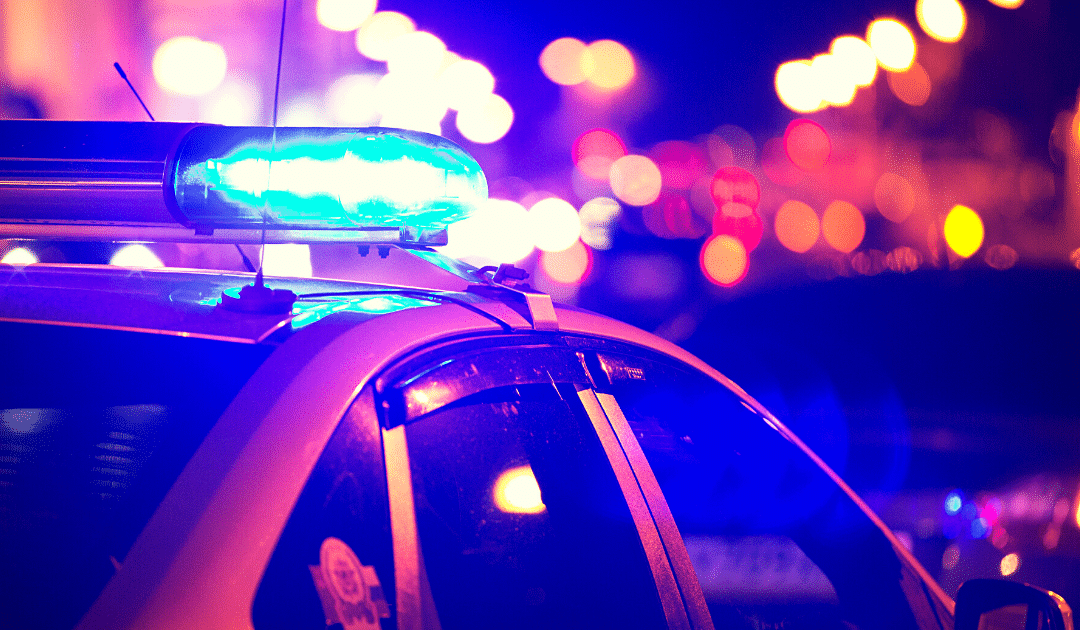
by California Casualty | Firefighters, Peace Officers, Safety, Travel |
You hear sirens and see flashing lights. There’s only one thing to do. Pull over.
There’s a reason you’re moving out of the way.
Even a few minutes delay can be a matter of life and death when you’re traveling by ambulance. The same holds true if a first responder can’t get to the scene of an accident, a fire, or disaster. Emergency vehicles need to get to the place where they can help people. If you’re on the road where they are traveling, you can help them get there by giving them a clear path to their destination.
Your moving car is dangerous to stopped vehicles.
You may have noticed a police officer, a roadside worker, a car pulled over on the side of the road, or even a wreck. Driving by them or rubbernecking at high rates of speed is dangerous. According to the National Highway Safety Administration (NHTSA), “making a traffic or emergency stop on the side of our nation’s highways is one of the most dangerous things law enforcement officers do in the line of duty.”
Every two weeks, a first responder or roadside worker loses his/her life, reported AAA. The agency recommends slowing down to a speed that is 10-20 mph slower than the speed limit and changing lanes to be further away.
Pay attention so you’ll hear and see emergency vehicles.
If you have the radio blaring, if you’re texting, or otherwise distracted, you may not see or hear an emergency vehicle approaching. You might not know that you have to pull over until that vehicle is right there. Not only is that stressful, but your quick actions might also cause a collision.
Here’s what to do when you see lights and hear sirens.
-
- Put on your turn signal and slow down.
- Check your mirrors and make sure the way is clear.
- Move over to the shoulder and park your vehicle.
- Wait until the emergency vehicle has passed. You will want to stay at least 500 feet behind it.
- Check your mirrors, put on your turn signal and carefully pull back into traffic.
Importantly, don’t slam on your brakes. Don’t travel through a red light. Don’t stop in the middle of your lane. And never try to outrun an emergency vehicle.
Where you are, and the direction you’re traveling, matter.
Emergency vehicles don’t always come from behind you. Sometimes they are traveling in the opposite direction, on the other side of the road. Do you still have to move over? Check your state laws for the rules regarding moving over for emergency vehicles.
-
- If you are traveling in a high-speed lane, and there is no room to stop, slow down.
- If you are traveling in the left lane, go right as traffic on the right moves over.
- If you are stopped at an intersection, stay there.
- If the emergency vehicle is traveling on the opposite side of a divided highway, you don’t need to pull over.
- If the emergency vehicle is traveling on the opposite side of the road, and there is no divider, pull over to your right. That vehicle may need to use your lane to get by.
Every state in the U.S. has a move-over law. Most people don’t know about it. Check your state’s law and learn what you need to do to keep everyone safe.
This article is furnished by California Casualty, providing auto and home insurance to educators, law enforcement officers, firefighters, and nurses. Get a quote at 1.866.704.8614 or www.calcas.com.
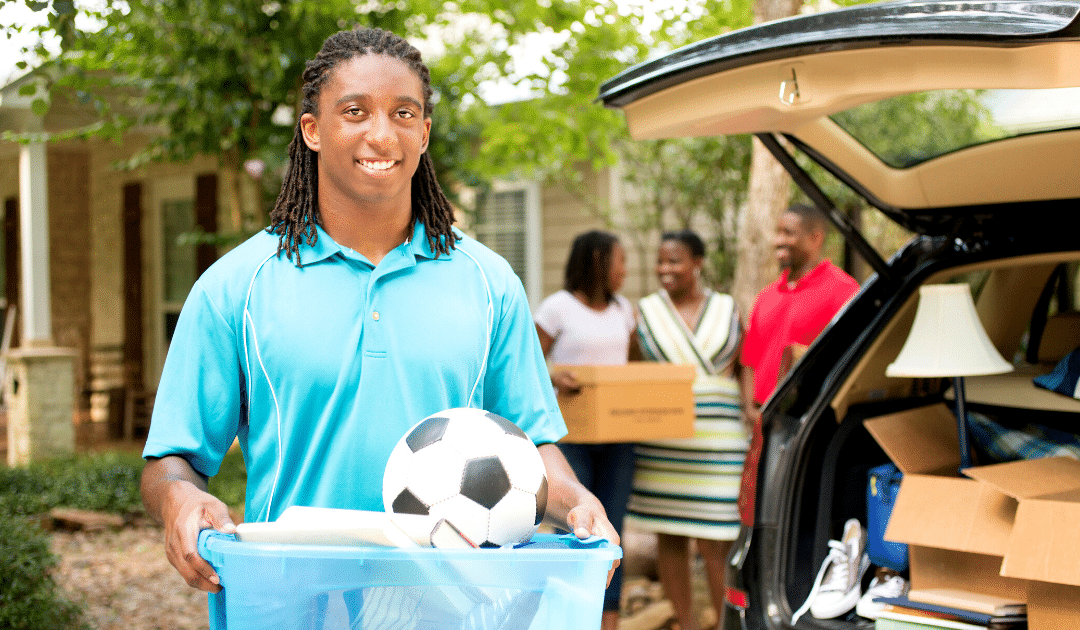
by California Casualty | Auto Insurance Info, Homeowners Insurance Info |
Your student is headed to college out-of-state – or across the state. It’s a milestone, and you’re helping them set up all of the necessary items associated with that big move, furniture, textbooks, food, cleaning supplies, etc.
In the midst of all of your preparation, don’t forget one of the most important items – insurance. Whether they stay on your policy or decide to get one of their own, you want to make sure your son or daughter is fully covered in terms of car and home/renters insurance.
Auto Insurance
Here are some common auto insurance questions for parents of college students.
My student won’t have a car away at school; do I still need to keep them insured?
Some students drive thousands of miles away so they can have their car with them, but others would rather keep their cars at home, and opt for flying in and using public transportation when they arrive. To avoid overcrowding, some schools even set limits on who can have cars on campus.
If your son or daughter will not have a car at college, you should still keep your student on your auto policy. This will avoid a lapse in coverage, and he/she may need to drive in an emergency and also will be coming home for breaks. (If your child has a car that will be kept at home and not driven while he/she is at school, ask your insurance company whether you qualify for a discounted rate.)
Do I need to change my insurance coverage to the state where the college is located?
Since college is not considered a permanent address, your student can keep his state driver’s license and the car may be registered and insured in your home state. However, you will want to check the insurance requirements where your student is attending college—and make sure that your state’s policy meets their minimum standards in the event of an accident. Either way, make sure that you notify the insurance company that the car will be kept in a different state so that they may update their records.
Should my student get his/her own auto policy?
As long as your son or daughter is still living with you, and you own the car he/she is driving, there is no need to get them their own car insurance, unless you would like to. There also is no specific age where you have to make that transition. A common time to switch to their own policy is when young adults move from the family home to their own first apartment.
If your student is living off-campus, and maintaining that address year-round, you may consider a separate auto policy.
Are there any discounts that we qualify for?
Your student may qualify for a good student driver discount, available from many insurance companies with proof of grades. Ask your insurance agent for other discounts that may be available.
Don’t forget! If your student is enrolled in school full time, was a resident of your household before moving out to attend school, and is a relative 24 years or younger or 21 or younger and in your care, your California Casualty homeowner’s policy offers the personal property protection they need as well.
Whether your child stays in a dorm on campus or resides in a leased residence off-campus, 10% of your homeowner’s personal property coverage (coverage c) extends to their possessions while they are away. If you believe they need more than that 10% coverage – for expensive musical instruments or computer equipment – then consider adding a scheduled personal property endorsement to your policy. With computers, tablets, smartphones, gaming systems, furniture and clothes, you would be spending thousands of dollars to replace your student’s possessions without this layer of protection.
You can’t be with them at college, but you can still protect them—with the right insurance.
This article is furnished by California Casualty, providing auto and home insurance to educators, law enforcement officers, firefighters, and nurses. Get a quote at 1.866.704.8614 or www.calcas.com.
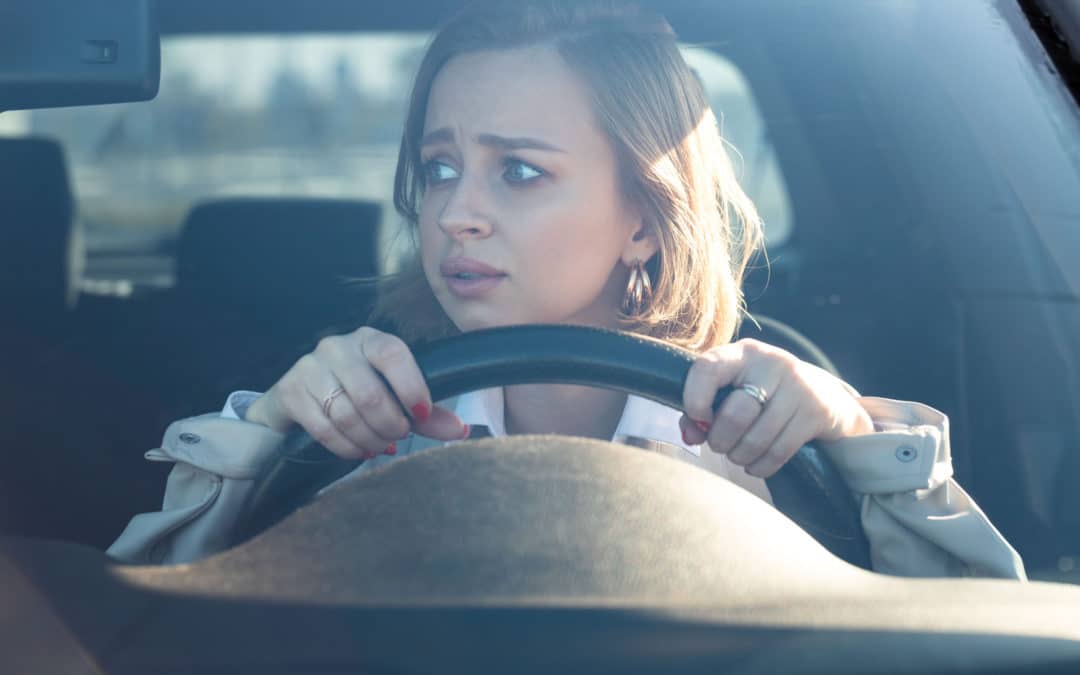
by California Casualty | Auto Insurance Info |
It’s tempting to look when you drive by an accident. You slow down and glance back, taking your eyes off the road for a brief moment. It’s a practice called rubbernecking, and it is a form of distracted driving.
The term rubbernecking dates back to the late 1890s, to describe people who turned their heads to listen to other people’s conversations. By the early 1900s, rubbernecking was used to describe tourists striving to see everything from their seats in wagons, cars, and buses. Today, it is a term for motorists who slow down, craning their necks to see an accident, usually on the other side of the road.
Why do we rubberneck?
Blame it on our natural curiosity. Those flashing lights attract our attention. We may be concerned about the people involved in the accident. We want to find out what’s going on. We can’t seem to look away, a reaction that may be tied to our fight-or-flight instinct. Our brain is evaluating the threat.
While rubbernecking may be a natural response, it is not a safe one. Here’s what you need to know about rubbernecking, including how to keep yourself safe on the road.
Rubbernecking…
Is distracted driving.
-
- A glance away of just 5 seconds when you’re traveling 55 mph means you have traveled the length of a football field without looking at where you were going!
Delays your response time.
-
- When you take your eyes off the road, you miss seeing brake lights, traffic lights, and pedestrians. By the time you see them, it may be too late to avoid a car accident.
Causes accidents.
Can also cause traffic jams.
-
- Rubbernecking starts a chain reaction of braking, which slows everyone down even though there is no real barrier on the road ahead.
Tips to Prevent Rubber Necking
Follow these steps to keep you and your passengers safe.
-
- Keep your eyes on the road. Resist the urge to look.
- Turn on your blinkers so cars behind you know you are slowing down.
- Ask your passengers to refrain from rubbernecking or taking photos or videos of the accident. Their movements in the car to get a good picture could cause added distractions or a blind spot for you, the driver.
- Be extra careful driving by a crash. Know that other drivers may not be paying attention because they’re rubbernecking.
- If you don’t have to be on the road during busy times, you may be able to avoid the holiday traffic and the potential for rubbernecking.
Using crash screens can also help reduce rubbernecking. A University of Florida study found that screens that blocked the view of an accident were effective in reducing rubbernecking.
We are still in the 100 Deadliest Days, so remember as you get on the road this summer, travel safely. And if you see an accident, try your best to keep your eyes on the road ahead.
This article is furnished by California Casualty, providing auto and home insurance to educators, law enforcement officers, firefighters, and nurses. Get a quote at 1.866.704.8614 or www.calcas.com.
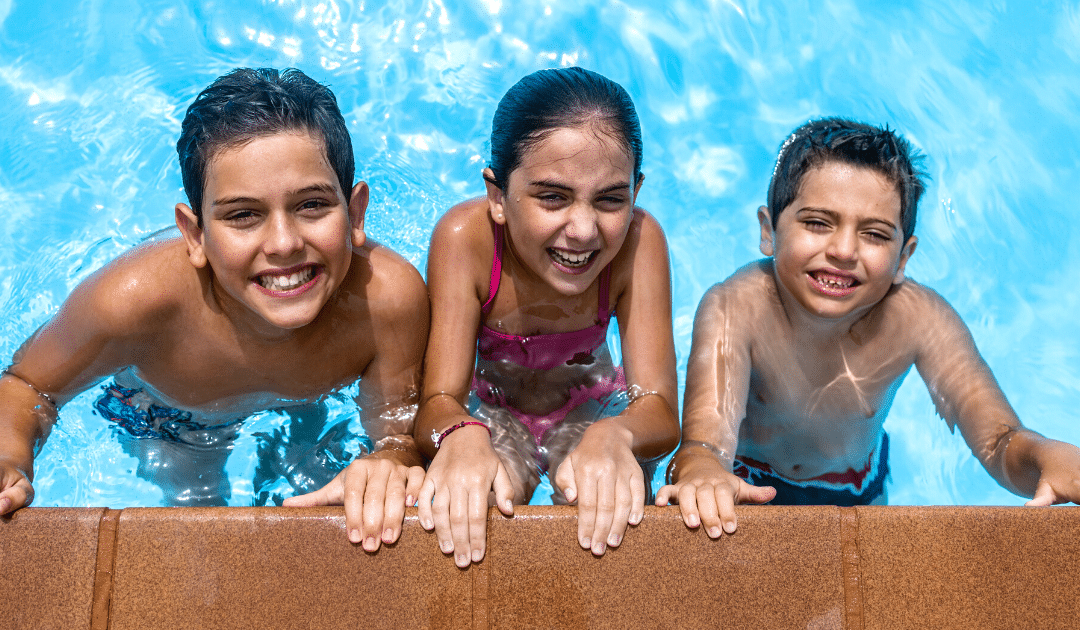
by California Casualty | Homeowners Insurance Info |
Summer is the perfect time for outdoor adventures. Whether you like hiking, biking, swimming or camping, there are plenty of activities to enjoy and places to explore.
While we have fun, it’s also important to remember that sometimes our outdoor excursions come with unexpected risks. From weather to wildlife encounters, make sure you and your family take the right precautions to stay safe. Follow these tips as you enjoy the great outdoors this summer.
Tips for Water Safety
In the U.S., 11 people die from drowning each day, according to the CDC. Children ages 1-4 are at the greatest risk, but drowning is also the second leading cause of accidental death among children ages 1-14.
These tragedies can be easily prevented with simple pool safety and water safety measures.
-
- Never swim alone. If possible, swim in the presence of a lifeguard.
- Teach children to swim. Even toddlers can learn water survival skills, according to the American Academy of Pediatrics. But remember that swim lessons do not guarantee your child can protect himself/herself from drowning.
- Designate a water watcher whenever your child is in the water. Avoid distractions, such as from phones. Drowning can happen in an instant.
- Don’t let children play around pool drains or suction fittings.
- Learn CPR in case you need it.
- Wear lifejackets if on a boat.
- Remember that swimming in a pool is different from swimming in a lake or in the ocean. There are currents and undertows.
- Don’t drink alcohol while swimming.
- Pool Safely is a national public education campaign. Take the Pool Safely Pledge and get a free downloadable safety kit.
Tips for Hiking Safety
Whether it’s a national park or a local trail, hiking is a popular way to connect with nature. Making the right preparations will help ensure that you can enjoy the scenery without worrying about injury.
-
- Know exactly where you are going. Consult with experts who have been there on what you need.
- Check the weather forecast and then recheck it. Bring any additional supplies you will need in case the weather turns.
- Do not hike alone. Travel with someone else, and if you’re going to a remote area, try to travel with a small group
- Know the nearest ranger station and the number in case you need help.
- Do not go into an area marked closed.
- Leave a copy of your itinerary with a trusted friend or family member. Include details such as your destination, the timeframe of arrival and departure, phone numbers of people you are with, specific trails and campgrounds, and even the car you will be driving. This will help in case you are lost.
- Pack the essentials. These include a first aid kit, compass, flashlight, matches, knife, food, water, toilet paper, duct tape, trash bag, whistle, bug spray, sunscreen, and a solar charging power source.
- Stay hydrated and know the signs of heat exhaustion. Infants and young children, as well as people over age 65, are at the greatest risk.
- If taking your dog on a hike, make sure he/she is protected against fleas and ticks. Bring water for your dog and take care that he/she does not get overheated.
Tips for Camping Safety
Being close to nature means that many of the hiking safety tips, above, will apply. In addition, you’ll want to take these added precautions.
-
- Arrive early so you can make camp before dark. Give yourself two hours of daylight to set up camp. Learn your campsite in the daylight so you have an idea of where things are before dark.
- Don’t pitch your tent near the tallest trees in case of a lightning storm.
- Build campfires in a safe area, away from trees, bushes, and other flammable objects. Beware of post-fire embers.
- Do not leave food or garbage in the open.
- Never approach or feed wildlife.
- Know that If animals feel cornered, they could bite, scratch or attack. Wild animals may transmit rabies.
- Practice good hygiene. Wash hands before handling food.
Tips for Bicycle Safety
Biking is great exercise and another fun family activity. Hit the road safely with these tips.
-
- Many states require bicycle helmets for children under 18. But helmets are good protection for everyone.
- Dress in bright colors so you will be seen.
- Wear sunglasses to protect your eyes and sunscreen to protect your body.
- Never ride with headphones or earpieces. You want to be able to hear what’s going on around you.
- Choose routes that have wide roads or bike lanes. Observe all traffic laws and be aware of drivers.
- Bring a patch kit in case you need to repair a tire or tube.
- Stay hydrated. Bring water with you.
- Carry some emergency cash in case you need it.
Whether you are traveling by car, plane, or RV always remember to travel safe and plan ahead of your adventure.
This article is furnished by California Casualty, providing auto and home insurance to educators, law enforcement officers, firefighters, and nurses. Get a quote at 1.866.704.8614 or www.calcas.com.





